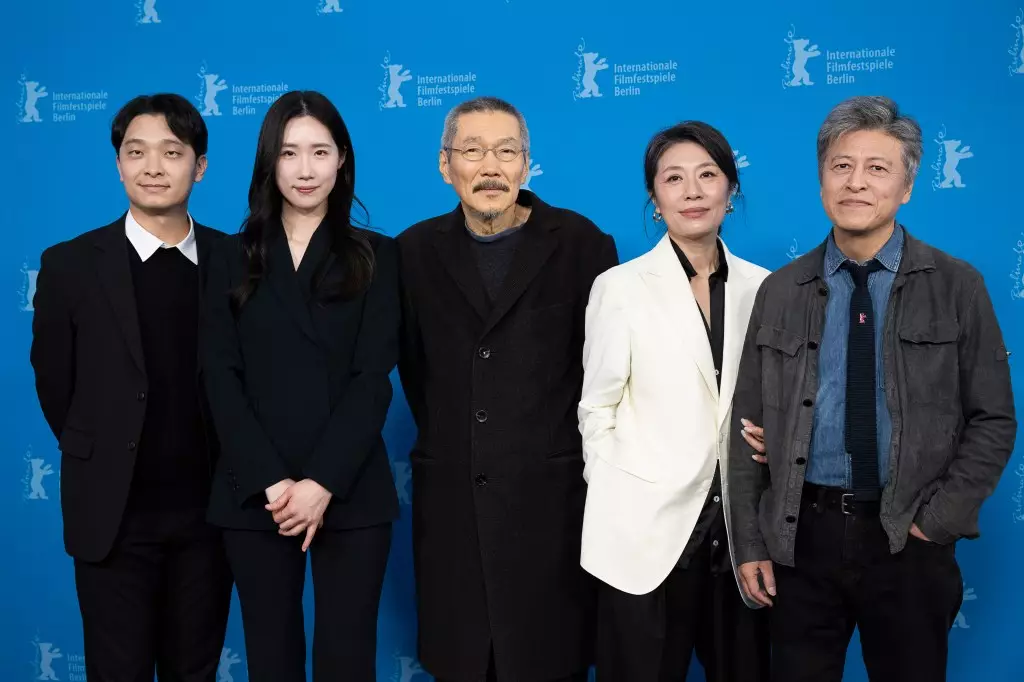For over three decades, Kwon Hae-hyo has established himself as a stalwart figure in the Korean film industry. Known for his versatility and depth, Kwon has collaborated with a variety of prominent filmmakers, experiencing firsthand the transformative journey of Korean cinema. Emerging from the shadows of regional limitations, Korean films have now ascended to commanding heights on the global stage, significantly influencing international audiences.
Kwon’s professional odyssey is notably marked by his longstanding partnership with the innovative director Hong Sang-soo. With twelve films to their credit, their collaboration is a testament to the artistic synergy between actor and director. It’s fascinating to see how this partnership has both shaped Kwon’s career and contributed to the uniqueness of contemporary Korean cinema. Films like “Train to Busan: Peninsula” and “Bogota: City of the Lost” showcase Kwon’s adaptability across different genres, illustrating his profound impact on the cinematic fabric of Korea.
Attending the Berlinale for the world premiere of Hong’s latest work, “What Does that Nature Say to You,” Kwon reflects upon the distinct aesthetic that defines Hong’s films. He explains how the director’s unconventional approach to storytelling transforms the actor’s experience. “When I am on set, I’m often unsure of how my scenes will ultimately manifest,” Kwon explains. This uncertainty is not a hindrance but rather a liberating aspect of working with Hong. By discarding traditional story arcs and predictable plot lines, Kwon feels he can explore the truth of each moment more deeply.
Unlike conventional films, where narratives often follow set trajectories, Hong challenges Kwon and his cast to inhabit their characters fully in the present. This improvisational spirit creates an atmosphere of authenticity, where the actors are compelled to respond naturally to situations as they unfold. Kwon reflects on this intimacy in the midst of uncertainty, emphasizing that this approach fosters a genuine exploration of the human experience.
Despite the seemingly spontaneous nature of Hong’s directing, Kwon emphasizes that preparation is meticulously maintained. Scripts are handed out on the day of shooting, a practice that heightens both the excitement and stress for the actors. Kwon notes that unlike other projects, where actors rehearse extensively before a scene, the unpredictability of rehearsals under Hong can lead to a distinctive dynamism that carries through to the final product.
Interestingly, Kwon counters the stereotype of improvisation in film. Contrary to what might be assumed, he states: “In Hong Sang-soo’s films, there is a profound lack of ad-libs.” This attention to dialogue underscores the importance of language and performance cohesion in their storytelling. Kwon stresses that despite the long takes commonly employed in Hong’s films, every line is thoughtfully constructed, requiring deliberate diligence from the cast.
Kwon’s longevity in a competitive industry can also be attributed to his grounding in social responsibility. His engagement with non-governmental organizations (NGOs) has formed an essential part of his identity, allowing him to frame his career within a broader societal context. While fame can often isolate individuals within the entertainment sphere, Kwon communicates a desire to exist beyond it. This multifaceted engagement has served to enrich his artistry, anchoring him in experiences that deepen his understanding of the world.
In light of this, Kwon muses on the nature of individuality within the crowded realm of acting. Rather than chasing fame or niche differentiation, he focuses on authenticity. “I’m just trying to be myself,” he rightly states, illustrating a perspective that champions genuine growth over superficial differentiation.
Kwon’s insights also extend to the broader structural evolution of Korean cinema throughout his career. The interconnectedness of social, political, and artistic growth has profoundly shaped the narrative landscape. He argues that the film industry has flourished in line with societal development, especially following the democratic movements that unfolded in Korea. Filmmakers like Park Chan-wook, Bong Joon-ho, and Hong Sang-soo are not merely creators; they are storytellers that reflect societal realities and aspirations.
In this way, Kwon believes that cinema should not merely project unattainable dreams but serve as a mirror to society, articulating shared experiences and truths. He advocates for the power of cinema to convey poignant reflections of reality, making them not just artistic endeavors but crucial commentaries on human experience.
Kwon Hae-hyo represents not just the narrative of his own career but the broader journey of a nation’s cinematic evolution. His work with innovative directors and his ardent commitment to social involvement come together to form a legacy that transcends mere entertainment. In understanding Kwon’s insights, we gain a deeper appreciation for the profound artistry and contextual depth that characterize Korean cinema today, setting the stage for future generations.

